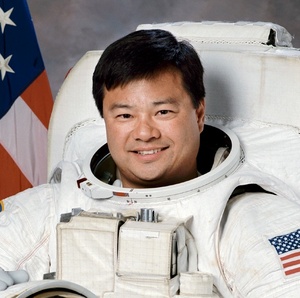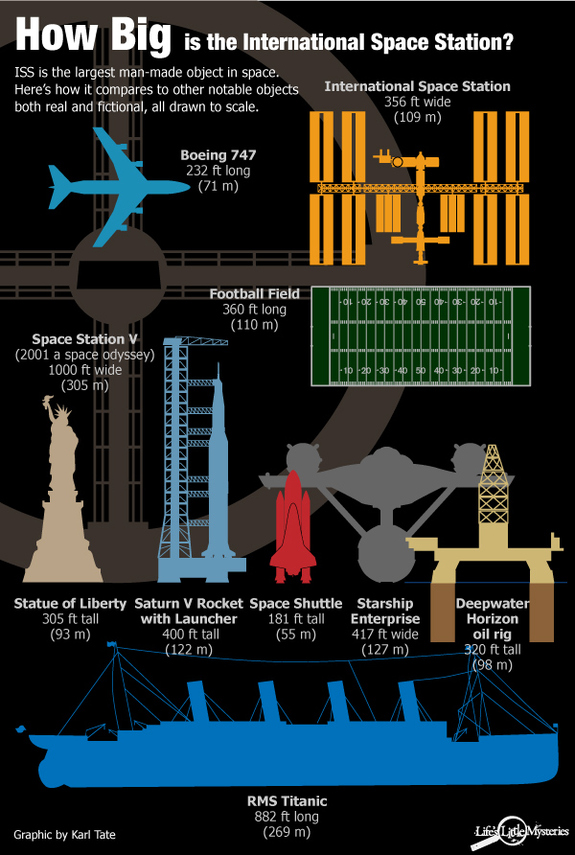
European lights seen by André Kuipers from space.
Credit: ESA/NASA
Leroy Chiao served as a NASA astronaut from 1990 to 2005. During his 15-year career, he flew four missions into space, three times on space shuttles and once as the co-pilot of a Russian Soyuz spacecraft to the International Space Station. On that flight, he served as the commander of Expedition 10, a six-and-a-half-month mission. Chiao has performed six spacewalks, in both U.S. and Russian spacesuits, and has logged nearly 230 days in space. You can read more of Chiao’s Expert Voices Op-Eds and film reviews on his Space.com landing page . Chiao contributed this article to Space.com’s Expert Voices: Op-Ed & Insights .
Very soon, Misha Kornienko and Scott Kelly will return to Earth after 11 months in space aboard the International Space Station (ISS). What will they feel? What will they face?
Even after a ten-to-fourteen-day mission to space, the return is dramatic. Your balance system is turned upside down, and you feel very dizzy. When you stand up for the first time, you feel about five times heavier than you expect. All of this can be unsettling, and nausea is not unusual. After a long-duration flight of six or more months, the symptoms are somewhat more intense. If you’ve been on a short flight, you feel better after a day or two. But after a long flight, it usually takes a week, or several, before you feel like you’re back to normal. All you want to do is lie around, because in that position, you are not dizzy. But, in order to recover your balance to the point of being able to exercise, you must force yourself to walk around; it is this physical activity that really accelerates your recovery.

A portrait of former astronaut Leroy Chiao, who commanded the International Space Station during his 15-year NASA career.
Settling in for a long flight
Going to space can also be provocative. For the last few minutes of ascent, you are subjected to acceleration levels that are three to five times that of normal Earth gravity. The direction of acceleration is through your chest. This is not very uncomfortable; it merely takes a little more effort to breathe.
At the moment of main engine cutoff (MECO), you are instantly weightless. It feels as if you suddenly did a forward roll on a gym mat, as your brain struggles to understand the odd signals coming from your balance system.
Dizziness is the result, and this can again cause some nausea. You also feel immediate pressure in your head, as if you were lying down headfirst on an incline. At this point, because gravity is no longer pulling fluid into your lower extremities, it rises into your torso. Over the next few days, your body will eliminate about two liters of water to compensate, and your brain learns to ignore your balance system. Your body equilibrates with the environment over the next several weeks.
Humans are remarkably adaptive. After a week or so, you learn to work in the weightless environment of space. The awesome beauty of the Earth below, while still striking, becomes a bit ordinary. The food, totally unremarkable on the ground, seems to be delicious; I suspect your brain knows that you need to eat to stay healthy, and fools you in this regard.
On a long flight, you settle into a routine of work, observing the Earth, taking photographs and keeping in touch with your loved ones via email and short phone calls, when the antenna is pointed at the TDRSS (Tracking, Data, Relay Satellite System). [One Year in Space: Epic Space Station Mission in Photos ]
Sometime around the three-to-four-month point, you start thinking that you wouldn’t mind going home. But, psychologically, you have prepared yourself for the long flight. You know your approximate return date and have set your expectations. Astronauts have a very strong sense of mission, and we don’t allow ourselves to dwell on these kinds of feelings. Even though Misha and Scott are flying nearly twice as long as did I, I know they have the same view, having no doubt set their expectations accordingly, just as I would have.
When your thoughts wander
What do you think about during a long flight? Spaceflight is a life-changing event. I thought a lot about my life on Earth. I gained a new perspective.
Looking down at our beautiful world , I couldn’t help but be struck by the fact that while everything looks vibrant and peaceful — intellectually — I knew that great suffering was happening in many of the lands over which we flew. It was difficult for me to resolve this conflict. As a result, I appreciated life much more than I had before, and it made me reflect on what really is important.
The anticipation of return builds as you get close to your return date. The arrival of your replacement crew is a joyous occasion. Not only are you glad to see your friends, you are also glad because it means that you can go home soon. You look forward to the reunion with your loved ones, to looking back with satisfaction on a job well done.
Do I miss space? Sometimes, a little bit. After each short space shuttle flight, I couldn’t wait to go back up. But, after my long flight, it was like eating a big, satisfying meal. Ten years later, I am still satisfied. But, I suspect that after not too much longer, I will again start to get hungry.

Follow all of the Expert Voices issues and debates — and become part of the discussion — on Facebook , ;Twitter and Google+ . The views expressed are those of the author and do not necessarily reflect the views of the publisher. This version of the article was originally published on Space.com .

Comments are closed.